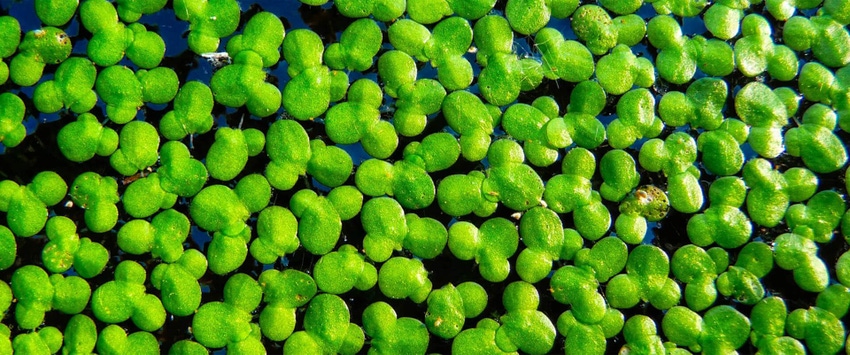Earth observation technology to foster improved growing conditions for high-protein duckweed production.
July 22, 2020

DryGro, a U.K.-based startup, is pioneering the cultivation of high-protein varieties of aquatic crops to develop a sustainable source of feed for livestock, and now RHEA Group is supporting DryGro’s project using Earth observation technology for environmental monitoring and feedback to foster improved growing conditions that will increase yields and protein content.
RHEA Group said it has won a contract to use its Earth observation data expertise to support DryGro, which is developing a sustainable animal feed alternative to soy.
DryGro’s project — under a program within and funded by the European Space Agency — is utilizing a floating macrophyte commonly known as Lemna, or duckweed, and turning it into a high-protein animal feed that requires much less land and far less water to produce, RHEA Group said in its announcement.
RHEA Group chief commercial officer John Bone said, “This summer, we will start working alongside DryGro, BuildX Studio and Hyper Collective to coordinate Earth observation and Internet of Things data that together will enable monitoring of a controlled growing environment system in Naivasha, Kenya. The data will provide a feedback loop that can improve growing conditions, boosting yield and protein content.
“The satellite data will help troubleshoot information collected from ground sensors and provide weather forecasts, along with measurements of ground heat and the moisture levels of the surrounding area. The aim is that, together, the data will allow DryGro to optimize control of the growing environment,” Bone added.
Duckweed is a well-known nuisance in ponds and lakes. It grows rapidly on the surface, which reduces oxygen in the water by inhibiting both diffusion and photosynthetic production -- to the detriment of any fish or algae. However, duckweed is rich in protein and grows incredibly fast, doubling in biomass every two days, the announcement said.
The challenge for this project is to make it commercially viable compared with soy. DryGro plans to cultivate duckweed in semi-cylindrical structures with closed-loop water filtration systems that require less land and could be situated in a wider variety of locations, RHEA Group said.
Duckweed could produce animal feed protein eight times faster than traditional soybean meal and, therefore, could become a direct substitute for it in animal feed, the announcement said, noting that another advantage of duckweed feed is that it uses 99% less water than soy because all of the water used can be recycled.
RHEA Group is a privately owned professional engineering and solutions company that provides bespoke engineering solutions, system development and security services for space, military, government and other critical national infrastructure organizations.
Headquartered in Belgium, RHEA Group employs more than 500 people and has offices in Belgium, the U.K., the Czech Republic, Italy, France, Germany, Spain, Switzerland, the Netherlands, Luxembourg and Canada and works at clients’ premises throughout Europe and North America.
You May Also Like



